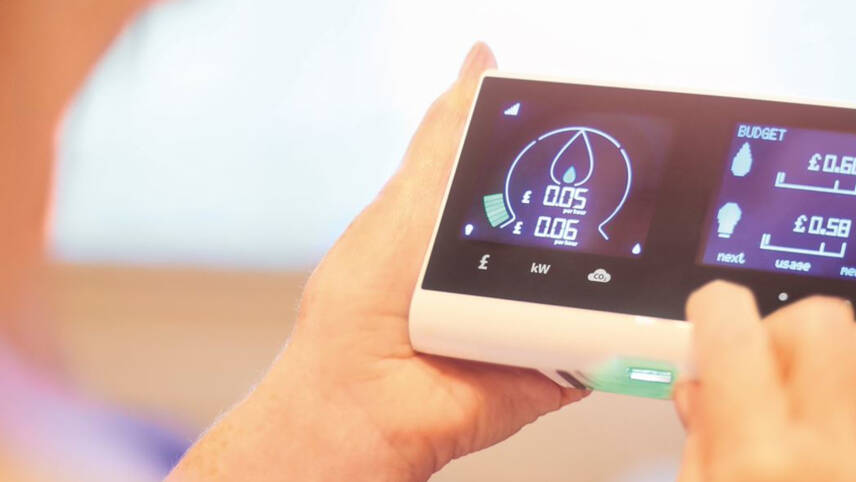Member only content free until 26/05/2024
To continue reading this article and enjoying free access to all Utility Week’s content up to the 26/05/2024 Register today!
Ready to become a member?

Energy suppliers have been accused of deliberately blocking moves which would prevent millions of smart meters from going “dumb”.
The accusation has been levelled by smart meter installer and energy infrastructure company SMS, which has repeatedly called for third parties like itself to be able to manage the firmware that underpins smart meters – a role currently undertaken by suppliers.
SMS smart product and strategy director Tom Woolley told Utility Week that some suppliers are prioritising meter deployment over firmware updates which is contributing to the high numbers of dumb meters.
The latest government figures – published last week – reveal that almost 4 million smart meters were operating in “traditional mode” at the end of 2023.
Despite the high number of dumb meters, suppliers have rejected SMS’ proposed amendments to the Smart Energy Code to transfer firmware responsibility to third party organisations.
Woolley said: “We’ve spent almost two years trying to get this change through and it is repeatedly being rejected.
“The main reason for it being rejected is a feeling that it’s not needed and that the energy supplier industry doesn’t need third parties to help manage the portfolios.”
He added: “A third party being enabled to manage and upgrade their own assets and help energy suppliers with such a service is only ever a good thing.”
The Smart Energy Code is the agreement that defines the rights and obligations of energy suppliers, network operators and other relevant parties involved in the management of smart metering in Great Britain.
Modifications to the code are subject to the approval of the Change Board. Its membership includes representatives from energy suppliers, networks, the Data Communications Company and Ofgem.
Despite being on the board, Ofgem does not have a vote but does have the final say on any approved modifications.
Woolley said he hopes the regulator will “step in” and express its support for the code modification to encourage the industry to adopt it.
“What I’m hoping for is that instead of just repeating the cycle of trying to persuade energy suppliers this could be a good thing for industry, perhaps it’s time to accept that it will be rejected by energy suppliers,” he said.
“But if Ofgem could then step in and see the merits of third parties being able to manage their own assets, then maybe it could go through anyway.”
A consultation on SMS’ modification, MP207 Allowing Registered Supplier Agents to Maintain Meter Firmware, was held last year.
All five respondents, Eon, Ovo, Utility Warehouse, Utilita and Engie, said they did not think the modification should be approved.
In its response, Eon said the modification “provides a very limited benefit”, while Ovo said if it was approved it “would be paying for a service that we would not be utilising”.
“We are yet to see any evidence of any demand for this service either. Until those that wish to use the service come forward, we cannot fully understand the benefits of this modification. We feel that this would be far better suited as an Elective Service,” Ovo added.
Elsewhere, Utilita said the cost to implement it “far outweighs the benefits that would be provided”.
Four of the respondents also included a cost estimate of implementing SMS’ proposal, with estimates ranging from below £100,000 to as much as £500,000.
An Ofgem spokesperson said: “Ofgem has a role in approving or rejecting modifications and monitors proposals closely. Our decision-making is based on whether the modification effectively delivers and aligns with our overarching priority to protect consumers.
“The way we use energy will look very different in the future, and the smart meter rollout is an integral part of moving to a cleaner, more efficient energy system, and empowering consumers to understand their energy use, and access innovative smart tariffs that could save them money.
“While the majority of smart meters are working correctly, we’ve asked suppliers to provide us with more detail on how they plan to tackle connectivity issues. Suppliers are responsible for making sure their customers’ smart meters operate correctly, and we expect them to communicate with their customers clearly if there are any issues with their smart meter. If customers have concerns about the way this is handled, they can complain to their supplier, and if the issue is not resolved to their satisfaction, they should raise it with the Ombudsman.”
A Department for Energy Security and Net Zero spokesperson said: “It is for Ofgem and the industry to decide whether to change the Smart Energy Code.
“While the vast majority of smart meters are working correctly, we are concerned that reporting errors by a minority of suppliers have uncovered more meters not operating in smart mode than previously thought.
“Lord Callanan has written to Ofgem, urging action to ensure suppliers are held to account if they are not supporting customers with issues as they should be.”




Please login or Register to leave a comment.